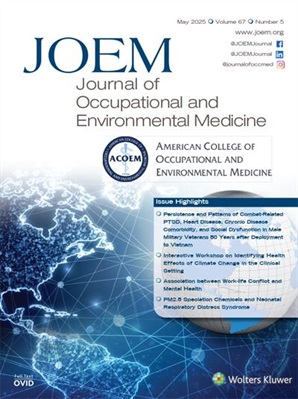
A cohort of ORAU employees recently put their expertise to good use to publish a study on chronic health conditions in U.S. Department of Energy (DOE) former workers examined in the National Supplemental Screening Program (NSSP).
The study, titled “Longitudinal Surveillance for Chronic Health Conditions in Former United States Department of Energy Site Workers” and published in the May issue of the Journal of Occupational and Environmental Medicine, was an investigation of findings by the NSSP, which is managed by ORAU for DOE.
“This study focused on findings from rescreened former workers, seeking to identify the extent to which NSSP screenings are responsible for identifying previously unknown conditions,” said Zachariah Hubbell, ORAU research associate. “Our work revealed that NSSP initial exams and rescreening exams both successfully identify medical issues of concern that were not reported in participants’ medical history or identified in previous screenings. A second purpose of the study was to compare the frequencies of some medical conditions to those in the general population.”
The researchers found that for some conditions, such as reduced kidney function, the NSSP’s former worker population demonstrates a higher rate than the reported global burden of the disease. An additional finding showed that certain DOE job categories, such as production line workers, are associated with higher rates of some medical findings, including hypertension and diabetes.
“Collectively, these findings strongly reinforce the value of the NSSP’s longitudinal health surveillance approach,” explained Hubbell.
The NSSP provides medical screenings every three years to DOE former workers who may have been exposed to hazards in the line of work, screening for both occupational and non-occupational conditions. Because of the length of time and repetition of these screenings, the NSSP allows for long-term surveillance to a large number of participants. The NSSP has screened over 22,000 participants.
This study helped address previously undiagnosed medical conditions and highlighted the benefits of voluntary repeat screenings. The research topic was chosen in support of the NSSP’s mission to maximize the benefit of these health screenings to DOE former workers.